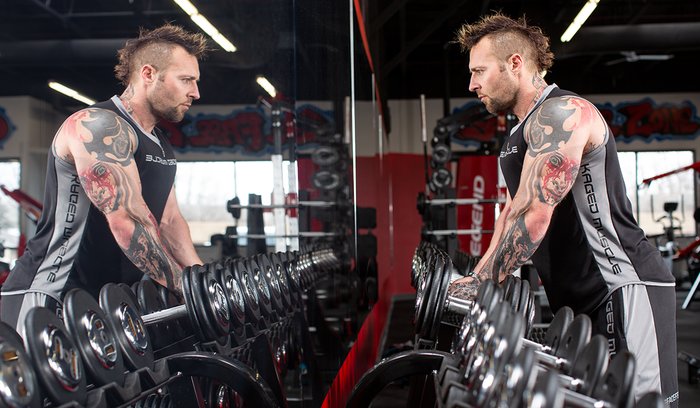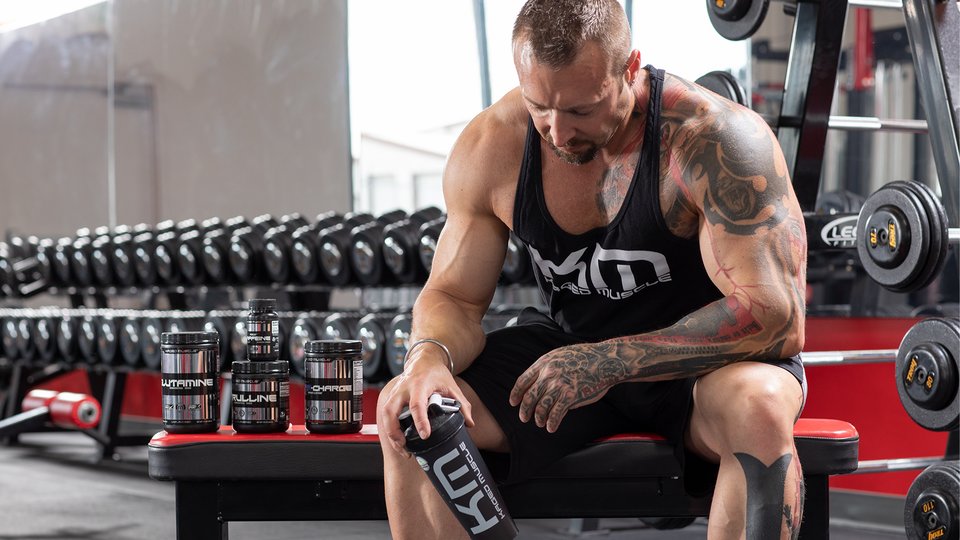Products You May Like
Speeding up recovery is a good idea for many reasons, and getting back to the gym strong and healthy is chief among them. When you recover more quickly between workouts, you’re able to perform at a higher level the next time you train, leading to added intensity and overload. The upshot of continuously pushing the boundaries is, of course, significant progress.
Here are five simple ways you can speed up your recovery between workouts and get back into the gym in better shape:
1. Hydrate Properly
Almost every biological system in your body works more efficiently when you’re hydrated, in the same way that everything regresses when you’re dehydrated. Drinking great quantities of water helps with nutrient transportation, digestion, and general muscle health. Even protein synthesis relies on muscles being well hydrated to start the recovery process, which can help reduce muscle soreness in the hours and days following an intense training session. I carry a gallon jug around with me all day and recommend that you drink a minimum of one gallon per day, infused with electrolytes.
2. Manage Exercise-Induced Inflammation
Reducing inflammation throughout the body can help accelerate recovery. When the gut is inflamed, nutrient uptake can be compromised. I’ve found that using turmeric with BioPerine can help, but it depends on whether your diet consists of natural, wholesome foods rather than heavily processed alternatives.
Inflammation is a natural byproduct of intense training, so managing it with ice baths is a great first step to faster recovery. Even something as simple as taking a walk is a great way to prevent the body from stiffening up after training, moderating the impact of inflammation and muscle soreness.
3. Deload for a Week
If you’re training hard and intense at every workout, you should do a deload phase every 3-5 weeks. “Deload” means to reduce your training volume by approximately 30-50 percent for one week to support central nervous system and muscle tissue recovery.
During this week of training, use all-out intensity but with far less volume, which is what usually causes inflammation. By programming your training schedule to this format, you will recover quicker and make greater progress toward your goals.

4. Sleep Better
Optimizing sleep is one of the smartest things you can do for improved recovery and general health. Growth hormone and testosterone, two of the most pivotal hormones for recovery, rely on you getting quality sleep. Start by quantifying your sleep, monitoring how long you spend in the REM phase, where recovery occurs at a much quicker rate. I use an Oura Ring for this, but there are numerous devices that will help with sleep tracking.
There are simple ways to improve the quality of your sleep, as well. One of the easiest is to minimize blue-light exposure from screens during the hour before bedtime, as it has been shown to have negative effects on the body’s melatonin production, making it harder for you to fall asleep. Similarly, try to avoid stressful triggers such as opening work-related emails before bed, as they can cause your mind to race at the exact moment that you’re looking to slow it down.
Even simpler, you can spend time in a candlelit room, have a warm bath or shower before bed, or meditate for 10-20 minutes.
Finally, keep an eye on your caffeine intake. Caffeine has up to a six-hour half-life, so stick with decaf within six hours of bedtime, or consider a nonstimulant pre-workout formula if you train in the evening.
5. Consume Enough Protein
Getting approximately 1.5 grams of protein per pound of lean body weight is my recommendation for rapid recovery. To determine your lean body weight, you will need to calculate your body fat percentage. Then, subtract your fat mass from your gross weight, and what’s left is your lean body weight. Multiply that number by 1.5 to find the amount of protein you should consume each day. For further recovery, eat every 2-3 hours to enhance muscle protein synthesis. The resulting heightened anabolism is a natural byproduct that helps improve recovery.
After your workout is complete, have some RE-KAGED to kick-start recovery! Not only does it provide 28 grams of fast-digesting protein, but it also contains fermented BCAAs, fermented glutamine, BetaPower, and patented Creatine HCl. If you are trying to eat 200 grams of protein per day, this accounts for almost 15 percent of it, which is very convenient.
Follow these recovery tips consistently, and it will have a profound impact on your training and performance. After all, the faster and more effectively you recover, the quicker you can get back into the gym, and the sooner you’ll reach your goals.
